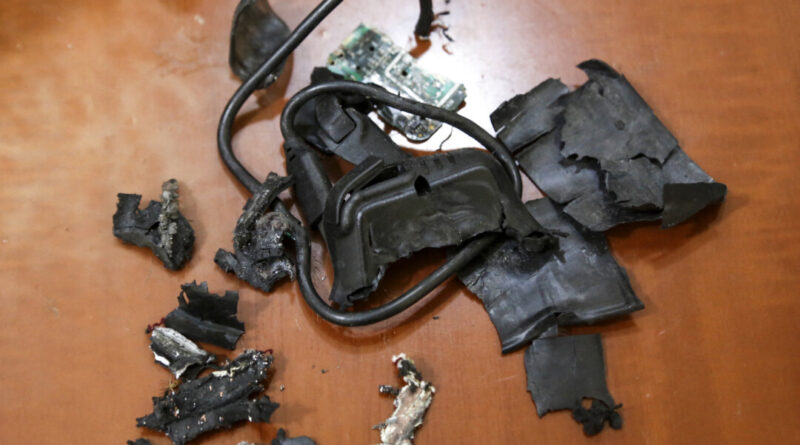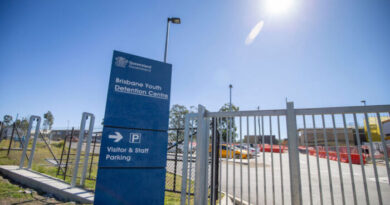Taiwan Denies Manufacturing Exploding Pager Components on Island
The president of Gold Apollo has faced questioning by prosecutors in Taiwan regarding the pagers that exploded in Lebanon on Tuesday.
The economy minister of Taiwan, Kuo Jyh-huei, stated that the components used in the thousands of pagers that detonated in Lebanon were not manufactured on the island.
Kuo confirmed on Friday, “I can confirm that they were not made in Taiwan.”
He added, “The components consist of low-end IC [integrated circuits] and batteries.”
Kuo mentioned that the judicial authorities are currently investigating the situation.
Hsu Ching-kuang, the president of Gold Apollo, who had their branding on parts of the beepers in Lebanon, was questioned by prosecutors in Taiwan on Thursday.
Images of the destroyed beepers indicate that they were similar to Gold Apollo’s AR-924 pagers.
Manufactured by Hungarian Company
Hsu, the founder of Gold Apollo, clarified earlier this week that his company did not produce the devices but had outsourced the manufacturing to a company based in Hungary called BAC Consulting, which had the authorization to use the brand.
Approximately 3,000 pagers exploded on Tuesday, with Iran-backed Hezbollah claiming that the attacks were carried out by Israelis, although Israel has not confirmed or commented on the incident.
Hsu did not respond to inquiries from reporters as he departed the offices of the Taiwanese state prosecutors in Taipei late on Thursday.
Taiwanese prosecutors have not disclosed details of their investigation into Gold Apollo.
Teresa Wu, the sole employee of a company named Apollo Systems Ltd., also declined to speak to journalists as she left the same prosecutor’s office on Thursday.
Hsu mentioned on Wednesday that a person named Teresa was one of his contacts for the deal with Budapest-based BAC.
Journalists from various media outlets visited BAC’s registered office but found no evidence of a manufacturing facility or employees claiming to work for the company.
Twelve individuals, including two children, lost their lives when the pagers detonated between 3:30 p.m. and 4:30 p.m. after allegedly receiving a coded message that triggered the explosions, according to local authorities.
Many individuals, including Hezbollah members, were injured, with surgeons in Beirut noting that most injuries were to the hands and eyes as the pager owners raised them to check moments before the explosions.
A subsequent attack occurred on Wednesday when numerous walkie-talkies detonated across Lebanon, including at several Hezbollah funerals.
At least 20 individuals perished and around 450 were injured.
Fraudulent Japanese Walkie-Talkies
The walkie-talkies bore the branding of the Japanese company Icom, but they are suspected to be counterfeit products.
Icom, located in Osaka, stated that they had not produced or exported the IC-V82 model or the required batteries for operation in the past ten years.
Ray Novak, a senior sales manager at Icom America’s amateur radio division, asserted at a trade show in Rhode Island on Wednesday, “I can assure you that they were not our products.”
On Thursday, Israel conducted airstrikes on several Hezbollah artillery positions in southern Lebanon.
Since the commencement of the Gaza conflict in October, Hezbollah has launched numerous mortars and rockets into northern Israel and the Israeli-occupied Golan Heights, resulting in several casualties.
Hezbollah leader Hassan Nasrallah, in a televised address on Thursday, described the attacks as an unprecedented security and military blow to Lebanon.
Speaking from an undisclosed location, Nasrallah stated that the pager and walkie-talkie attacks had “crossed all red lines” and vowed to retaliate.
Hezbollah and Israel have been adversaries since the early 1980s, and in 2006, they engaged in a war in southern Lebanon resulting in over 1,200 fatalities, including 121 Israeli soldiers.
Associated Press and Reuters contributed to this report.



